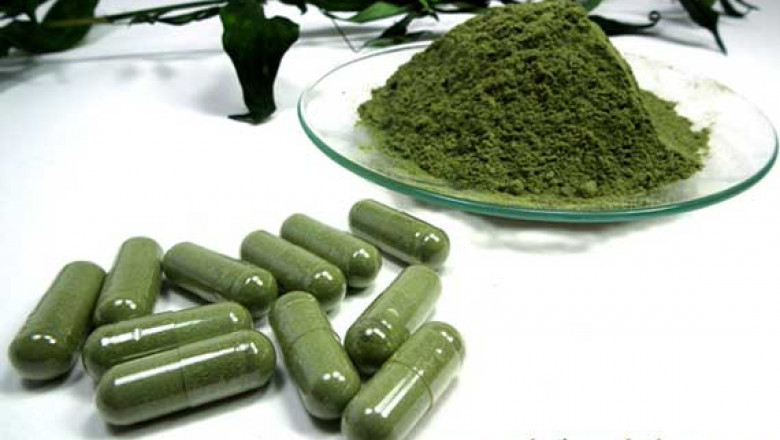
The Comprehensive Guide to the Benefits of Alfalfa Supplements
Introduction
Alfalfa, also known as Medicago sativa, is a nutrient-rich plant that has been used for centuries as a herbal remedy. While commonly recognized as livestock feed, alfalfa is gaining popularity as a dietary supplement for humans due to its numerous health benefits. In this comprehensive guide, we will explore the potential advantages of alfalfa supplements for overall well-being, from its rich nutrient profile to its potential effects on various aspects of human health.
Nutrient-Rich Superfood
One of the primary reasons for the increasing popularity of alfalfa supplements is their exceptional nutrient content. Alfalfa is a potent source of essential vitamins, minerals, and phytonutrients. It contains vitamins A, C, E, and K, along with an array of B vitamins. Additionally, alfalfa provides minerals like calcium, iron, magnesium, potassium, and phosphorus. These nutrients play vital roles in maintaining overall health and supporting various bodily functions.
Antioxidant Support
Alfalfa is rich in antioxidants, which help protect the body against oxidative stress caused by free radicals. The high content of vitamin C and E, along with flavonoids and other phytochemicals, make alfalfa a powerful antioxidant source. Antioxidants can contribute to reducing inflammation, preventing cellular damage, and supporting a healthy immune system.
Digestive Health
The consumption of alfalfa supplements may promote digestive health and alleviate common gastrointestinal issues. Alfalfa is known for its high fiber content, which aids in regular bowel movements and prevents constipation. Moreover, the presence of digestive enzymes in alfalfa can enhance nutrient absorption and support overall digestive function.
Detoxification and Liver Health
Alfalfa’s detoxifying properties make it a valuable supplement for supporting liver health. Its high chlorophyll content aids in the removal of toxins from the body and assists in the liver’s detoxification processes. This helps maintain liver function and may contribute to overall well-being.
Bone Strength and Joint Health
Alfalfa is a rich source of calcium, magnesium, and vitamin K, all of which are crucial for maintaining strong and healthy bones. These nutrients support bone density and help prevent conditions like osteoporosis. Additionally, the anti-inflammatory properties of alfalfa may alleviate joint pain and inflammation, making it beneficial for individuals with arthritis or other joint-related issues.
Cardiovascular Health
Regular consumption of alfalfa supplements may contribute to heart health due to several factors. The presence of saponins in alfalfa can help reduce cholesterol levels, particularly LDL (bad) cholesterol, which lowers the risk of cardiovascular diseases. Moreover, the high potassium content in alfalfa may support healthy blood pressure levels, further benefiting heart health.
Hormonal Balance
Alfalfa supplements may have positive effects on hormonal balance, particularly for women. The plant compounds in alfalfa, known as phytoestrogens, can mimic the activity of estrogen in the body. This property may provide relief from menopausal symptoms, such as hot flashes and night sweats, and support hormonal equilibrium.
Immune System Support
The immune-boosting properties of alfalfa can be attributed to its nutrient density and antioxidant content. The vitamins and minerals present in alfalfa help strengthen the immune system, supporting the body’s defense against infections and diseases. Regular consumption of alfalfa supplements may enhance overall immune function and promote general well-being.
Conclusion
Alfalfa supplements offer a multitude of potential benefits for human health. From providing a rich array of essential nutrients to supporting various bodily functions, alfalfa can be a valuable addition to a well-rounded dietary regimen. Whether you’re looking to improve your digestive health, boost your immune system, or support bone strength, alfalfa supplements offer a natural and nutrient-dense option to consider. As with any dietary supplement, it is advisable to consult with a healthcare professional before incorporating alfalfa supplements into your routine, particularly if you have any underlying medical conditions or are taking medications.
Ieva Kubiliute is a psychologist and a sex and relationships advisor and a freelance writer. She’s also a consultant to several health and wellness brands. While Ieva specialises in covering wellness topics ranging from fitness and nutrition, to mental wellbeing, sex and relationships and health conditions, she has written across a diverse range of lifestyle topics, including beauty and travel. Career highlights so far include: luxury spa-hopping in Spain and joining an £18k-a-year London gym. Someone’s got to do it!
[email protected]
- The Comprehensive Guide to the Benefits of Alfalfa Supplements - July 5, 2023
- Can You Eat Papaya Seeds? - July 4, 2023


